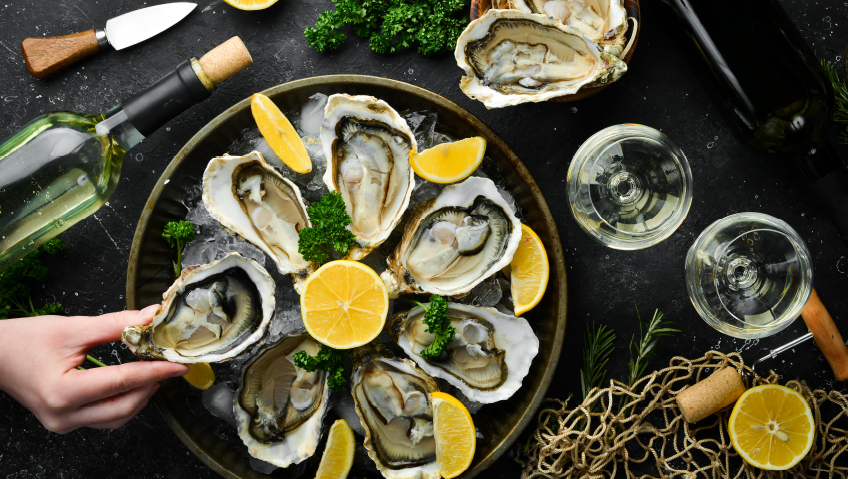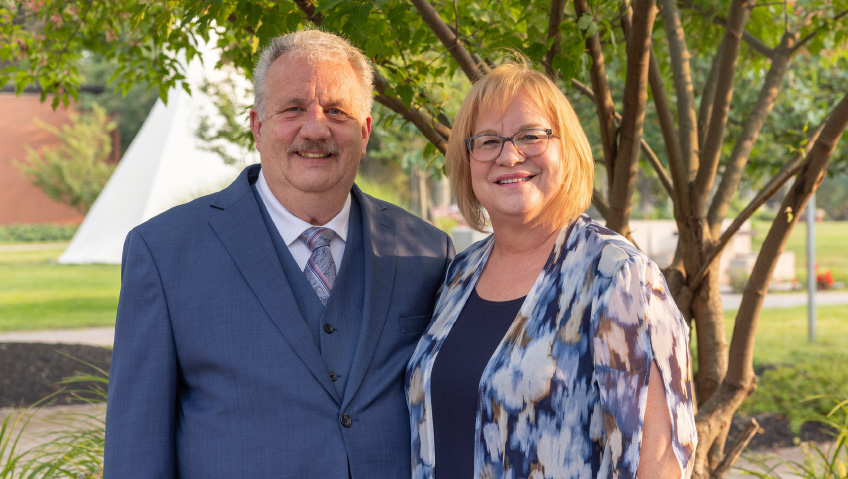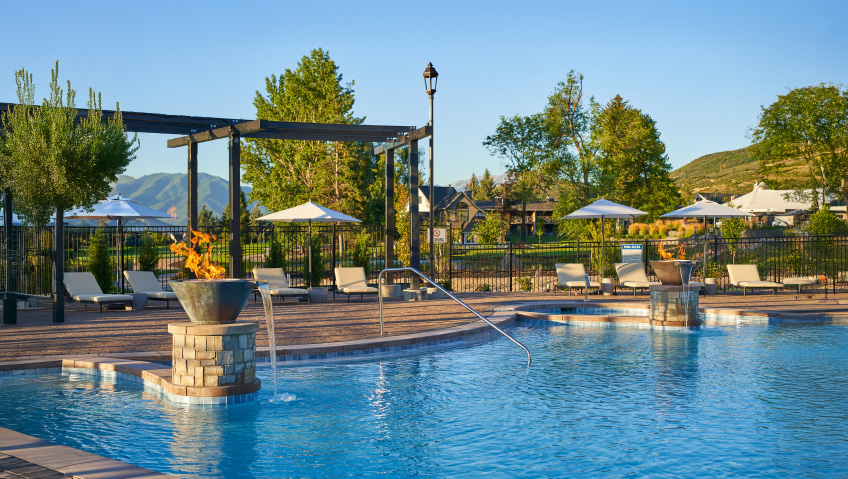For 30 years, Kildare Fisheries of Kildare, PEI has been laser-focused on getting top-quality seafood, including pasteurized Jonah crab and lobster, under the Kildare Princess brand, to Global markets.
But this conversation with Jamie Rayner, founder and owner of Kildare Fisheries, on the Kildare River and the Northumberland Strait in Prince County, PEI, is about much more than how to achieve success in the seafood market, which he has in spades.
Instead, the conversation begins with colourful anecdotes about lessons learned and homespun wisdom about what to do when roadblocks and walls go up in front of you. “Walls are made to stop people, until you find a way to get over them, go around them, or go through them,” says Jamie.
That’s something he’s done many times, for more than 30 years, “as he built this company from the ground up,” his son Collin Rayner, General Manager overseeing quality control, tells us.
Although it began as a one-man operation, today the company employs between 100 and 120 year-round—remarkable in an industry where most seafood businesses can provide only seasonal employment.
As a young man in the late 1980s, Jamie Rayner’s dream was to purchase a lobster license as his father and three older brothers had done, however, the skyrocketing price of the licences and the reduced number available stood in the way of that dream. At the time he was fishing eels and oysters but when the eel market dried up, he did his research and located a live-eel buyer in Toronto.
“I built a water tank in my garage to hold them alive, but I didn’t realize the tank needed a cover to keep them in,” he says, “and so the next morning I found 70 percent of the eels crawling across the grass, heading back to the river.” He recovered all except seven, “and that was the first lesson learned. The next lesson was when I was pulling a trailer with a tank of fish behind my Camaro, heading to the Fisherman’s Market in Halifax. But I hadn’t gone a quarter-mile from my house when the wheel bearing went in the trailer.”
Determined to make the delivery, he bought a 6-wheeler truck with a refrigeration unit and that is how the company started in 1993. At that time, Kildare’s business involved mainly pelagic fish (mackerel and herring) and groundfish (flounder and cod), which were ferried across the Northumberland Strait and on to Halifax where they were filleted and packaged. “When the bridge [Confederation Bridge] opened in 1997, it made a huge impact in a positive way for handling seafood,” he says.
In 1999, he registered Kildare Fisheries to process oysters, which it did under the Kildare Princess brand, and scallops and lobsters, “so for the next ten years we continued in oysters as well as being a service provider and commissioned broker for many plants in Atlantic Canada for which we provided live lobster, snow crab and rock crab directly,” he explains.
“One packer to which we sold millions of pounds of lobster was Cape Bald Packers in Cap-Pelé, New Brunswick, a strong ally in the business and a wonderful company to deal with.”
There are two inherent challenges for packers and processors of fresh seafood products: one is that most of the fishery is seasonal and so can’t offer year-round employment, and the other is the relatively short shelf-life of fresh products with 75 to 85 percent of it taken up during transportation.
Rayner, however, came up with some creative solutions to get around those walls, which led to the development of the pasteurized Jonah Crab products, and which at the same time broke through the wall that was stopping the U.S.-based year-round Jonah crab fishery from realizing its potential.
Jonah crabs are found in the deep waters off the Atlantic coast, mainly in the area between Rhode Island and Shelburne, Nova Scotia, with 85 percent of the landings centred around Cape Cod, Fall River and Sandwich, Massachusetts. They have a sweet mild flavour, with flakey white meat, and they are not only tasty but nutritious.
A 4-ounce/113-gram serving, at only 120 calories, is a low-fat, low-carb treat, containing important minerals—calcium, potassium and iron—plus 25 grams of protein, a whopping 50 percent of the daily recommended amount.
But despite these excellent qualities, Rayner says the Jonah crab fishery was broken to the point where it was no longer sustainable because the market was underdeveloped and the price was low. Fishermen could fill their boats, but the only market was for small ma & pa shops.
Plants in Canada were bringing in small amounts to process as filler for crab cakes, mainly to help employees fulfil employment labour contracts, “and this is how we were introduced to the opportunity to have a year-round supply of seafood.”
Kildare started buying Jonah crab from the owners of Canal Seafoods, in Sandwich, MA, where the company also operates two Jonah crab fishing vessels, as well as a fine dining establishment on the same wharf where their vessels unload and continue to be their main supplier. “I want to give Canal a shout-out as they are a very important supplier to us,” Collin says.
“The first thing we did,” Jamie explains, “was adopt three of the most prominent vessels in the New Bedford area that caught the most crab year-round and were ready to be involved in a development program. Subsequently, we tripled the value of their product from a low of 65 cents a pound to two dollars a pound over five years, and doubled their catch rate from an average of 600,000 pounds per boat/per year to 1.2 million,” he shares.
“Then we reached into the state of Maine, where Jonah crab is a by-catch of the lobster fishery, and worked with the marine resources department there to have that zone considered as a Sustainable Fishery Under Examination. That opened the supply wider, so this year we’ll have a supply coming from both Maine and Massachusetts, with the bulk still coming from Massachusetts.”
But by overcoming the roadblock to year-round production (and hence year-round employment) with a plentiful supply of Jonah crab, Rayner was about to face another wall: how to get the crab claws and meat to market while still fresh.
“Fresh seafood has a shelf-life of five days, maximum,” he says, “so if I pack it on Monday after my truck brings it in across the border, and ship it back across the border on Tuesday, arriving Wednesday, customers only have Thursday to Saturday to use it. If they want it for a party on Sunday, they’re out of luck. We saw the market growing to the point where we couldn’t accommodate it and the only answer was to develop a pasteurization process that would provide bacteriological protection for a minimum of 180 days and could be challenged to go as long as 360 days.”
Rayner’s first stop was Martin’s Machine Shop, near Tignish, PEI, where the grandfather of current owner Dougie Martin, built Rayner’s first fishing tool, an eel spear, in the late 80s. “It’s the kind of place where if they don’t have it, they can make it.”
When the stainless-steel pasteurization unit, a basket measuring 36” by 30” by 24”, fitted into a batch cooker operation, was completed, Rayner contacted the BioFood Tech Centre in Charlottetown where Leigh Gao is the senior food processing scientist. He’s considered to be the leading authority on thermal treatment of food in Atlantic Canada, and Rayner was cautioned that so high were Gao’s standards, it was unlikely that his unit would be approved.
“But I felt if his standards were that strict and precise, I wanted to meet them and get his stamp of approval because then no one could question the safety of our product.”
With approval obtained by December 2019, that first unit, which Rayner now calls the “Volkswagen version,” capable of pasteurizing 180 pounds an hour with daily shutdowns for complete sanitization, was up and running.
However, because the product was so good and unavailable elsewhere, the market exploded, and Rayner faced yet another wall. The company simply couldn’t keep up with demand, as their trucks, arriving from Massachusetts with freshly caught crabs, had to await pasteurization of their loads before returning to the U.S. markets.
This meant going back to Martin’s Machine Shop to build the “Cadillac version” of the pasteurization unit, redesigned as a continuous feed cooker allowing 900 pounds through in a single hour. This new unit, now fully operational, also received Leigh Gao’s stamp of approval.
Originally, Kildare’s fresh, pasteurized Jonah crab was intended for the fine-dining restaurant market, but when restaurants were forced to close in March 2020 due to the pandemic, people turned to supermarkets looking for the quality seafood they’d grown to love. That opened a new market for Kildare Princess Brand Jonah Crab, exposing the product to a new tranche of seafood lovers, with supermarket sales skyrocketing.
With restaurants closed and tourism halted in PEI as well as in the U.S., local lobster fishermen too were facing a potential catastrophe, but Kildare had a solution. The company opened its doors to 127 lobster fishermen, pasteurized their catch, and sold it in pouches, just as they had marketed the Jonah crab under the Kildare Princess brand.
“It would have been the worst time ever for them,” says Jamie, “and we’re glad we could help.”
Since the pandemic, Kildare Fisheries continues to pasteurize PEI lobster, rock crab, and snow crab in the relatively short season while simultaneously working with Jonah crab, before focusing exclusively on Jonah crab for the rest of the year.
Meanwhile, Jamie, after discussions with Collin, is transferring the oyster portion of the business over a period of ten years to nephew Timothy Rayner, who has been farming it for him. As these high-quality oysters grown in the Biddeford Waters are a little darker in colour, they are being rebranded as Black Magic Oysters. Collin will continue as Quality Consultant for the new company.
Concludes Jamie Rayner, “As a young man all I wanted to do was fish. I never dreamed I would be in seafood production with a product you can’t get anywhere else in the world.”
So maybe he didn’t envision this exact future, but from an early age he did indeed envision a future in which he could go around, over, and through walls and roadblocks, and this is where it led him.






